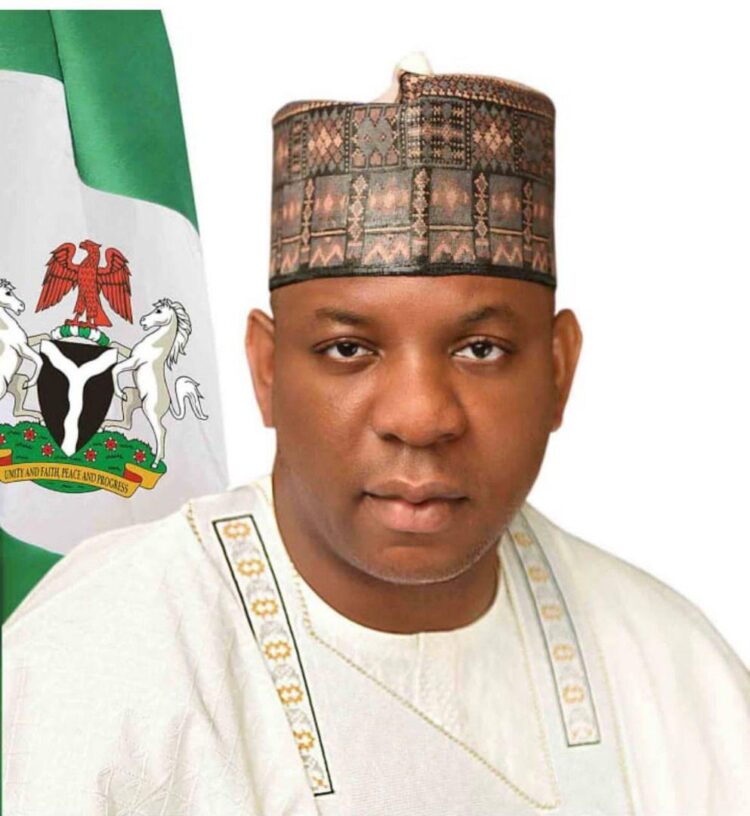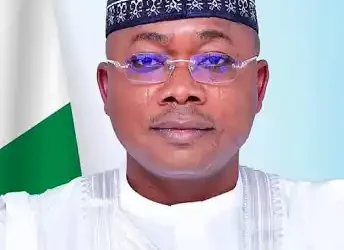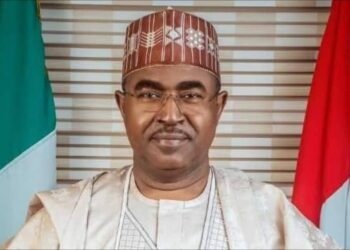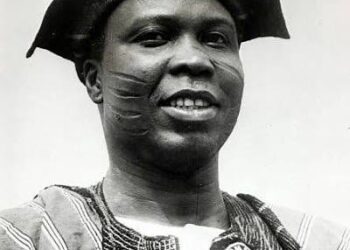By Onoja J. Okpanachi
August 2023 marked a historic turning point in the development of Nigeria’s steel industry. President Bola Ahmed Tinubu took a decisive step that would forever shape the sector: he announced the creation of an independent Ministry of Steel Development and appointed a vibrant young leader to drive it. His choice of Prince Shuaib Abubakar Audu reflected the President’s strategic insight and alignment with his broader vision of industrializing Nigeria.
For Prince Shuaib, an investment banker turned Honourable Minister of Steel Development, the assignment was a clear challenge: to interpret and execute the President’s vision and turn the steel sector around. Two years into this journey, hope is being renewed. His efforts aim to position Nigeria as a key player in the global steel market, promote professional skills, create jobs, stimulate economic growth, and drive the nation toward President Tinubu’s $1 trillion economy target.
From the outset, Prince Shuaib’s approach has been practical and transparent. He has underscored the centrality of Ajaokuta Steel Company to Nigeria’s industrial ambitions, while stressing the need for full readiness to sustain it once revived. At the same time, he has focused on building capacity within the sector. His initiatives are not elitist or confined to paperwork; he has taken the ministry’s efforts to the grassroots, giving ordinary Nigerians—particularly artisans—the opportunity to be part of the ministry’s projects and to see themselves as integral to the big picture.
His openness has also revealed the real challenges confronting Ajaokuta Steel Company. Unlike past administrations that made empty promises, Prince Shuaib has resisted vague timelines and instead reviewed the true state of the long-abandoned project. By drawing up a clear roadmap, he has shown Nigerians the practical steps being taken to align the steel sector with the President’s industrialization agenda. Thanks to his leadership, nothing is hidden; progress is visible.
One of his most strategic moves was to re-engage the Russians, the original builders of Ajaokuta Steel Company, leading to a memorandum of understanding. However, the Russia-Ukraine war slowed progress. Rather than wait indefinitely, Prince Shuaib sought alternatives, turning to China to explore new partnerships. This bold move reflected his investment banker’s instinct—recognizing that keeping options open is the best way to secure a favorable deal. Again, he kept Nigerians informed, and tangible results are gradually emerging.
Beyond Ajaokuta, Prince Shuaib has attracted complementary investments to strengthen the sector. His facilitation efforts supported the Nigerian National Petroleum Company Limited (NNPCL) and its partners in committing $500 million to establish five mini-LNG plants within the Ajaokuta domain. Similarly, he has encouraged private sector participation: the Inner Galaxy Group’s $400 million Stellar Steel Plant in Ogun State, set for completion in April 2026; the Orbit Galvanized Steel Plant, with an estimated $100 million annual turnover; AIG Group’s $600 million iron ore mine investment in Gujeni, Kaduna; and KAM’s multi-million-dollar plants in Ilorin and Sagamu. These moves reflect his commitment to integrating private investment into government plans and creating an enabling environment through openness and policy clarity.
In addition, Prince Shuaib secured a strategic partnership with the Ministry of Defence and the Defence Industries Corporation of Nigeria (DICON). This tripartite arrangement aims to produce military hardware—rifles, vests, helmets, and bullets—at Ajaokuta Steel Complex. This not only saves Nigeria significant costs but also strengthens national security and supports the economy.
Recognizing the value of long-term planning, he led the ministry’s technical team to develop a 10-year roadmap for Nigeria’s steel sector. He has also pushed for the revival of Aluminum Smelter Company Limited (ALSCON) and Delta Steel (now Premium Mines and Steel Limited). His collaboration with the National Assembly for the passage of the Nigerian Metallurgical Industry Bill 2023 has also been critical.
To strengthen institutional capacity, the Honourable Minister organized retreats for ministry staff to align them with the vision of the new ministry and the President’s broader goals. He also convened the maiden National Steel Summit, bringing together stakeholders to critically assess the sector and adopt a consensus roadmap for its sustainable revival.
At the heart of his passion is job creation. Prince Shuaib believes the steel sector can generate over 500,000 direct and indirect jobs—potentially more over time. With an annual production target of 10 million metric tonnes of liquid steel, Nigeria can position itself as a steel hub for Sub-Saharan Africa. Such progress will significantly advance the nation toward its $1 trillion GDP target by 2030.
Prince Shuaib Abubakar Audu’s two years at the helm of the steel ministry have shown that leadership is not about rhetoric but about action, vision, and results. From reviving long-forgotten projects to attracting billions of dollars in investments, from strengthening national defense to empowering artisans, he has set a new standard of what is possible when governance is driven by clarity and purpose. The steel industry, once a symbol of Nigeria’s missed opportunities, is gradually becoming the cornerstone of its industrial future. If this momentum is sustained, history may well remember Prince Shuaib not only as the man who revived Ajaokuta, but as the leader who helped forge Nigeria’s economic destiny in steel.
–
Onoja J. Okpanachi,
Abuja.
President, Development Journalism Initiative















